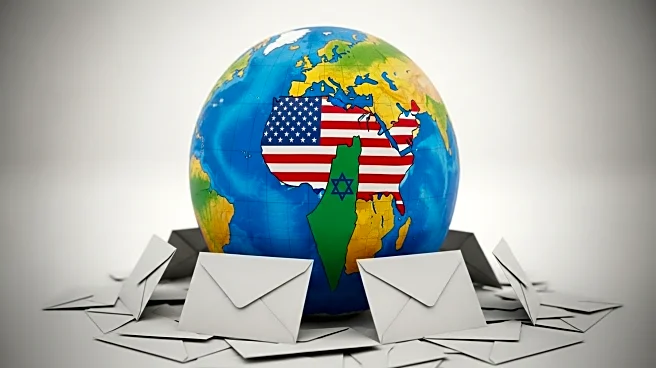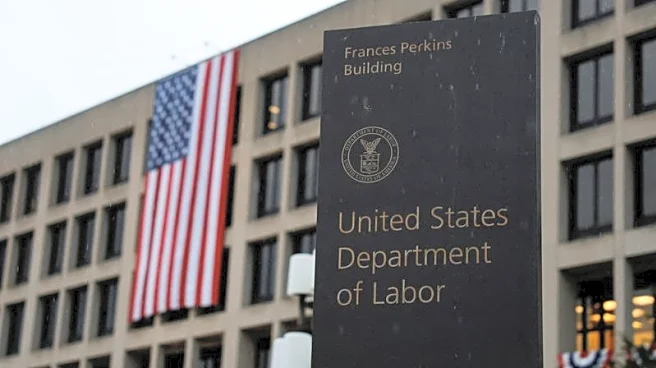What's Happening?
A series of letters to the editor in the Los Angeles Times discuss the geopolitical implications of Israel and the U.S.'s stance on Palestinian statehood. Contributors express concern over the alienation of allies due to the recognition of a Palestinian state. Criticism is directed at Israeli Prime Minister Benjamin Netanyahu for his military actions and President Trump for alienating allies. The letters reflect diverse opinions on the Israeli-Palestinian conflict, with some supporting Israel's position and others condemning its actions in Gaza.
Why It's Important?
The debate over Palestinian statehood and the U.S.-Israel relationship is a significant issue in international politics. The recognition of a Palestinian state by various countries challenges the U.S. and Israel's diplomatic strategies and could shift alliances. The letters highlight the complexity of the conflict, including the humanitarian impact on Palestinians and the broader implications for U.S. foreign policy. The discussion underscores the tension between maintaining traditional alliances and adapting to changing global dynamics.
What's Next?
The ongoing debate may influence U.S. foreign policy decisions and impact diplomatic relations with countries recognizing Palestinian statehood. The situation could lead to increased pressure on the U.S. and Israel to address the humanitarian aspects of the conflict and seek a resolution. The discourse may also affect public opinion and political strategies in upcoming elections.
Beyond the Headlines
The letters reveal deeper ethical and cultural dimensions of the Israeli-Palestinian conflict, including the role of religious and historical narratives in shaping political positions. The discussion also touches on the moral responsibilities of nations in addressing human rights issues and the balance between security and humanitarian concerns.











